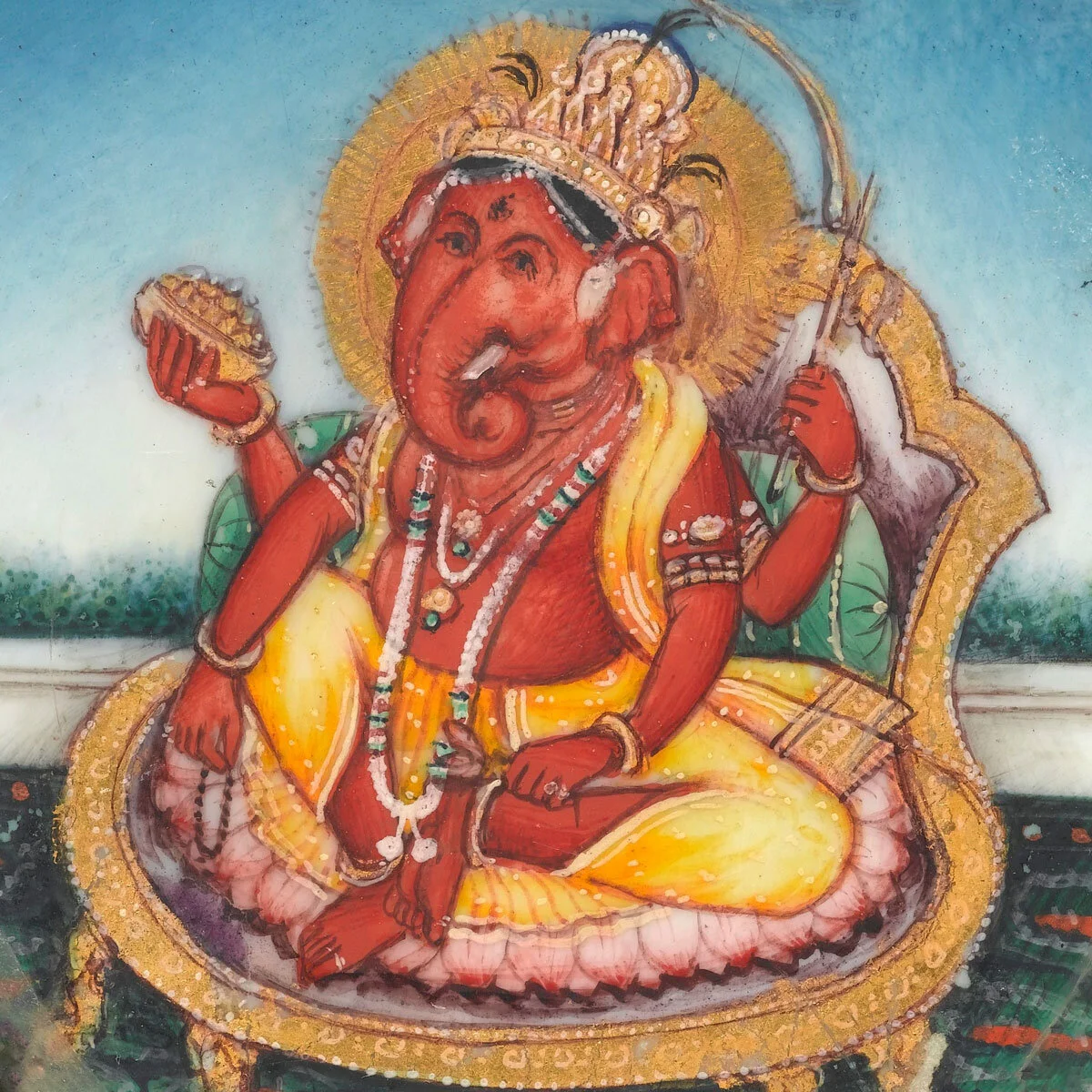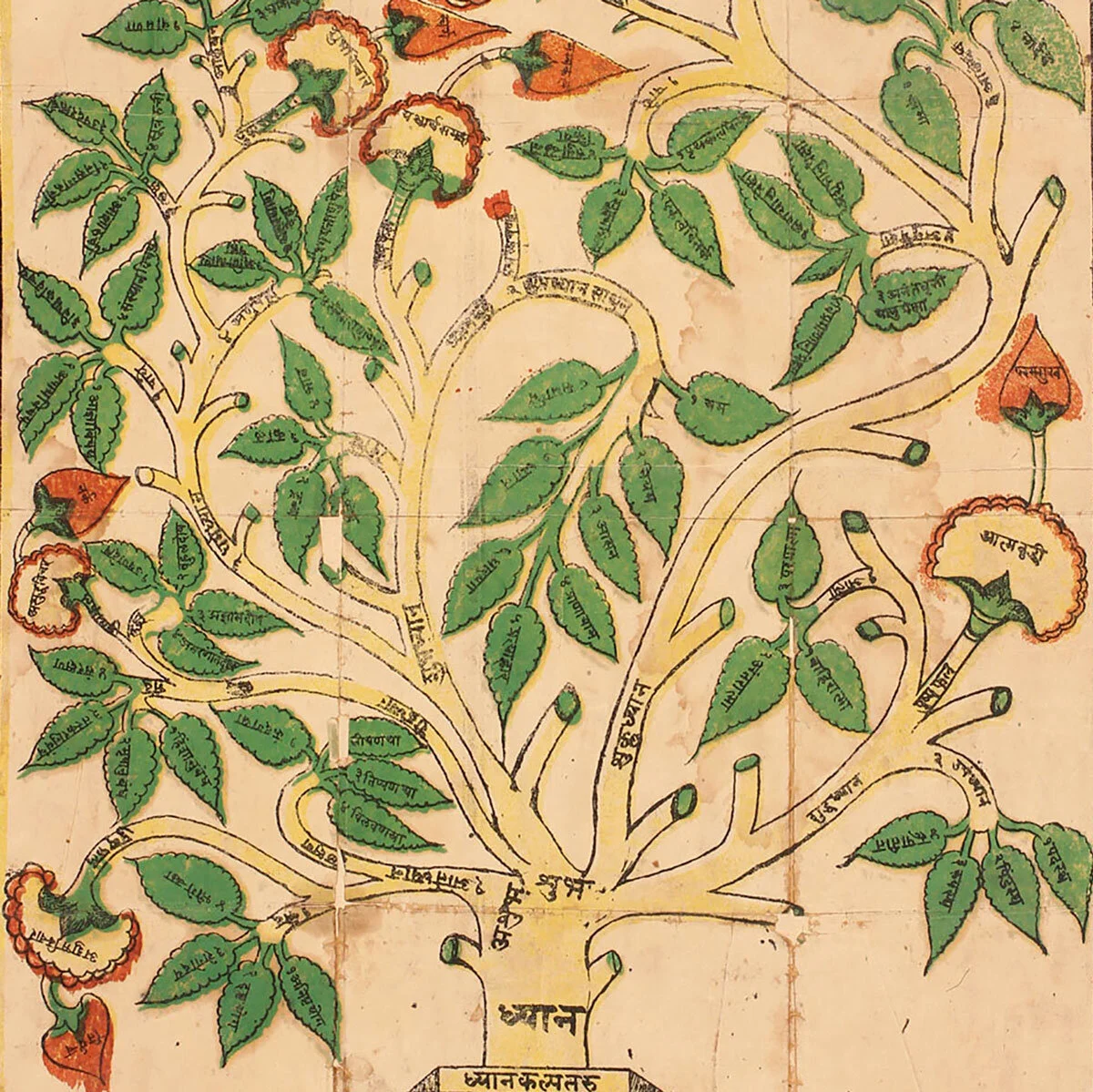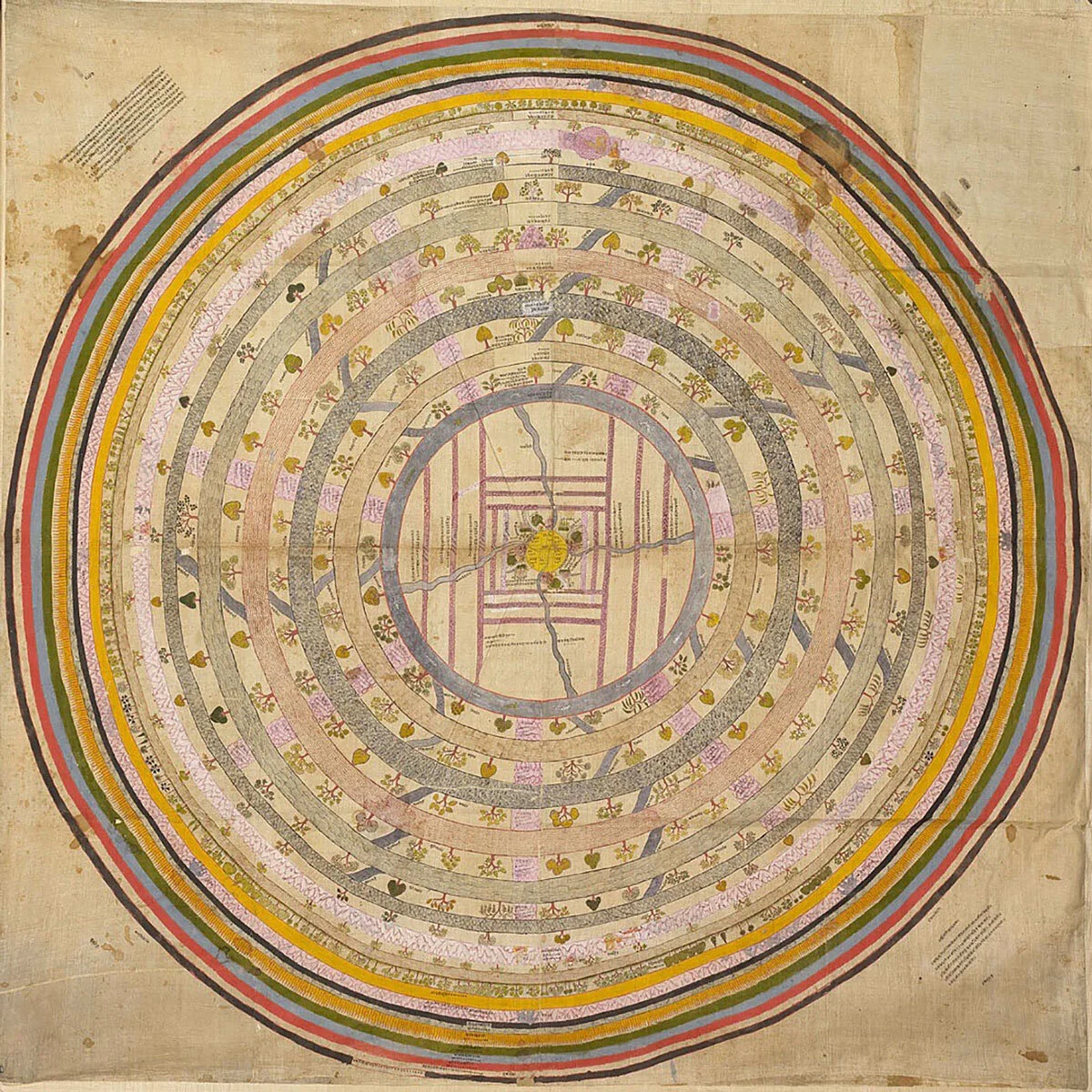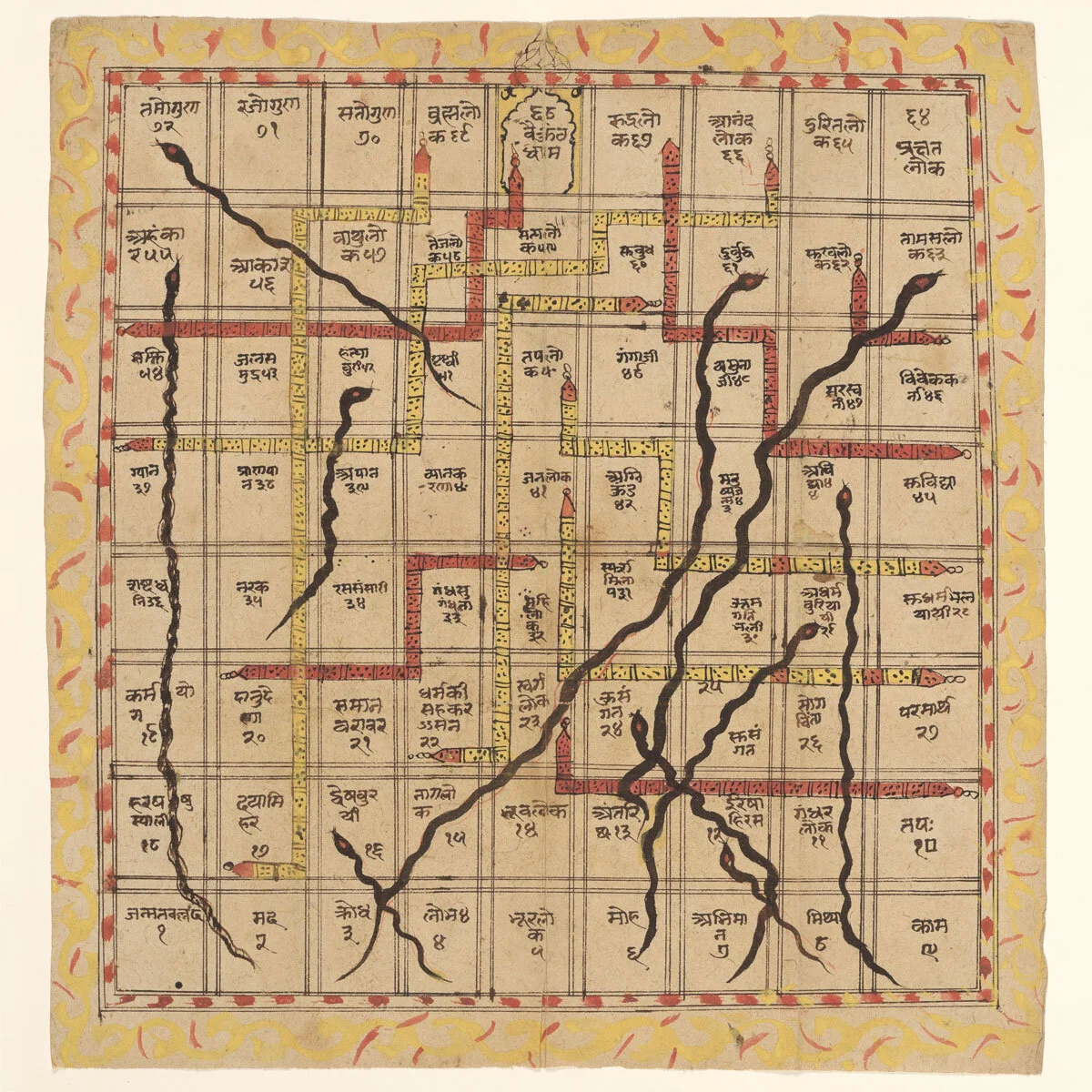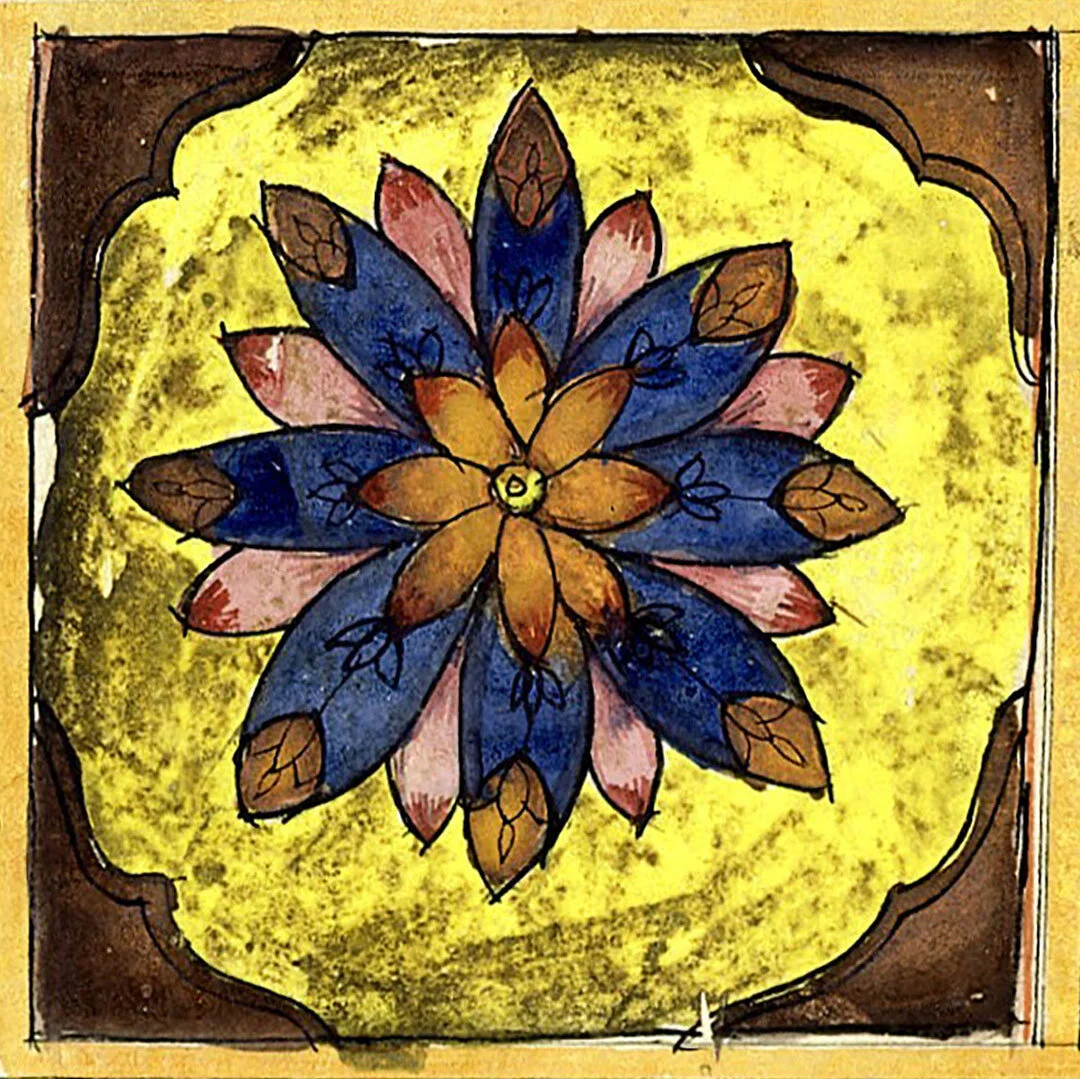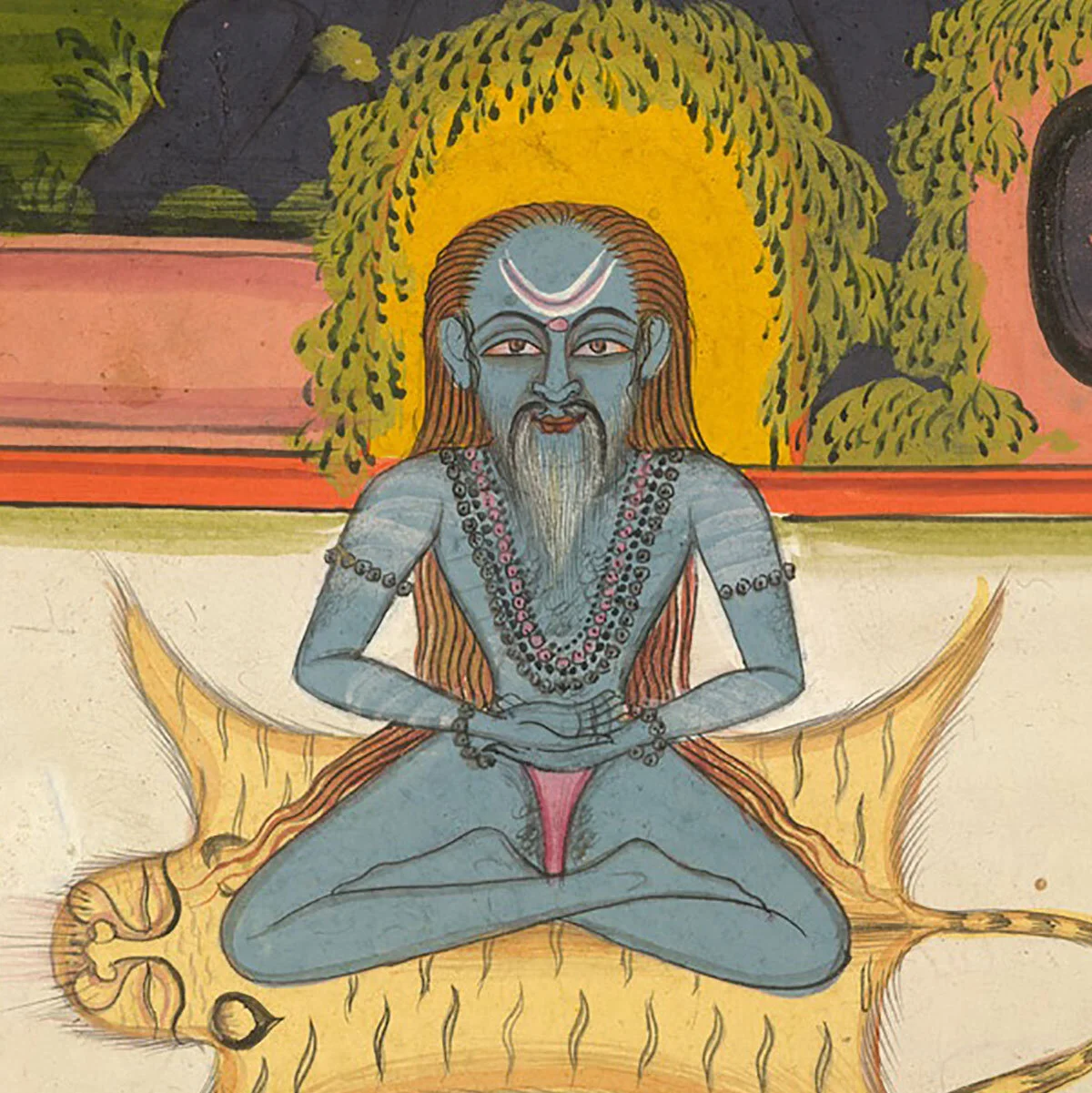Hosted by the Oxford Centre for Hindu Studies
A Weekend of Dharma
With Daniel Simpson, Zoë Slatoff and Nick Sutton
Saturday and Sunday
August 22–23, 2020
What exactly is dharma? This complex word has a wide range of meanings, from the basis of natural order to social duty. Join us to explore its implications in times of upheaval, with a focus on finding our purpose by acting with virtue.
Among other questions, we will be considering how to determine what is true, when it is right to resist injustice and by what means, and which underlying principles shape ethical conduct. To guide us, we will be reading passages from the Mahābhārata — including its best-known section, the Bhagavad Gītā — and reflecting on how ancient teachings apply to modern challenges.
The weekend will be a mixture of study, discussion and practice. With a grounding in traditional texts, we will investigate together how they relate to us personally, how our actions affect others, and what our collective dharma might be in the world. We will also contemplate ways to deepen our connection to an innate sense of fairness, and ways to express this by serving our communities.
Bookings are now open. Click the button below to enrol via the OCHS.
FORMAT
All sessions are held on Zoom in our virtual classroom: access details are sent on enrolment.
Timings: 10.00am – 4.00pm (New York); 3.00pm – 9.00pm (Oxford).
Price: £75 for one day, or £125 for the weekend.
Enrolment includes access to recordings of all sessions and digital copies of presentations.
Saturday, August 22
Introduction
We will begin by discussing guiding principles that shape how we live. This will provide a foundation for reading texts together and seeing how they resonate with us.
Daniel Simpson and Zoë Slatoff
10.00 – 10.30 am (NY)
3.00 – 3.30 pm (UK)
Defining Dharma
We will examine different definitions of the word dharma, looking closely at texts, such as the Bhagavad Gita, that use the word in a variety of ways. The meaning of dharma depends on context, with a range of possibilities within the same work.
Zoë Slatoff
10.40 – 11.40 am (NY)
3.40 – 4.40 pm (UK)
Designs for Life
Traditionally, humans are said to have four aims. The Mahabharata asks which of these goals should take priority. Is upholding dharma more important than pleasure and prosperity? Is spiritual freedom compatible with all of them?
Daniel Simpson
11.50am – 12.50pm (NY)
4.50 – 5.50pm (UK)
* BREAK (60 MINUTES) *
Roots of Action
In Sanskrit, everything begins as an action: nouns are derived from verbal roots. Dharma comes from dhr, which means “to hold, bear, support.” This is also the root of dharana, “concentration,” which we will put into practice with Vedic chanting and meditation.
Zoë Slatoff
1.50 – 2.50 pm (NY)
6.50 – 7.50 pm (UK)
Ethical Tensions
There are multiple visions of virtue in the Mahabharata. None of them are absolutes and some contradict each other. There are three general categories: social obligations, moral principles and ascetic spirituality. How are they reconciled, both in theory and practice?
Daniel Simpson
3.00 – 4.00 pm (NY)
8.00 – 9.00 pm (UK)
Sunday, August 23
Why Dharma Matters
Dharma is the very essence of Indian teachings and without it all the vast array of spiritual practices are little more than window-dressing. We will explore the implications with the author of many of the OCHS’s online courses.
Nick Sutton
10.00 – 11.00 am (NY)
3.00 – 4.00 pm (UK)
Political Dimensions
The Mahabharata’s ethical teachings were shaped by a war. Today, we are searching for truth in the midst of “Fake News.” Without drama there would be no dharma, but how do we find calm in the midst of such chaos, and what is a dharmic response?
Daniel Simpson
11.10am – 12.10pm (NY)
4.10 – 5.10pm (UK)
* BREAK (60 MINUTES) *
Modern Contexts
How might dharma be put into practice in everyday life? Facing challenges this year, we have constantly been asked to reevaluate our actions, both individually and collectively, and to consider their implications for ourselves and for others.
Zoë Slatoff
1.10 – 1.55 pm (NY)
6.10 – 6.55 pm (UK)
Shades of Grey
Working in groups, we will discuss some case studies. These examples will explore what is dharmic in various nuanced situations, encouraging us to consider whether there is ever one way to act that is unequivocally “right,” except in context.
Daniel Simpson and Zoë Slatoff
2.05 – 2.50 pm (NY)
7.05 – 7.50 pm (UK)
Embodied Rituals
We conclude with a practical session combining chanting, meditation, journaling, and setting intentions for how to apply what we have learned in our lives. We will also reflect on the meaning of ritual and how it relates to taking action.
Daniel Simpson and Zoë Slatoff
3.00 – 4.00 pm (NY)
8.00 – 9.00 pm (UK)
Bookings are now open. Click the button below to enrol via the OCHS.

